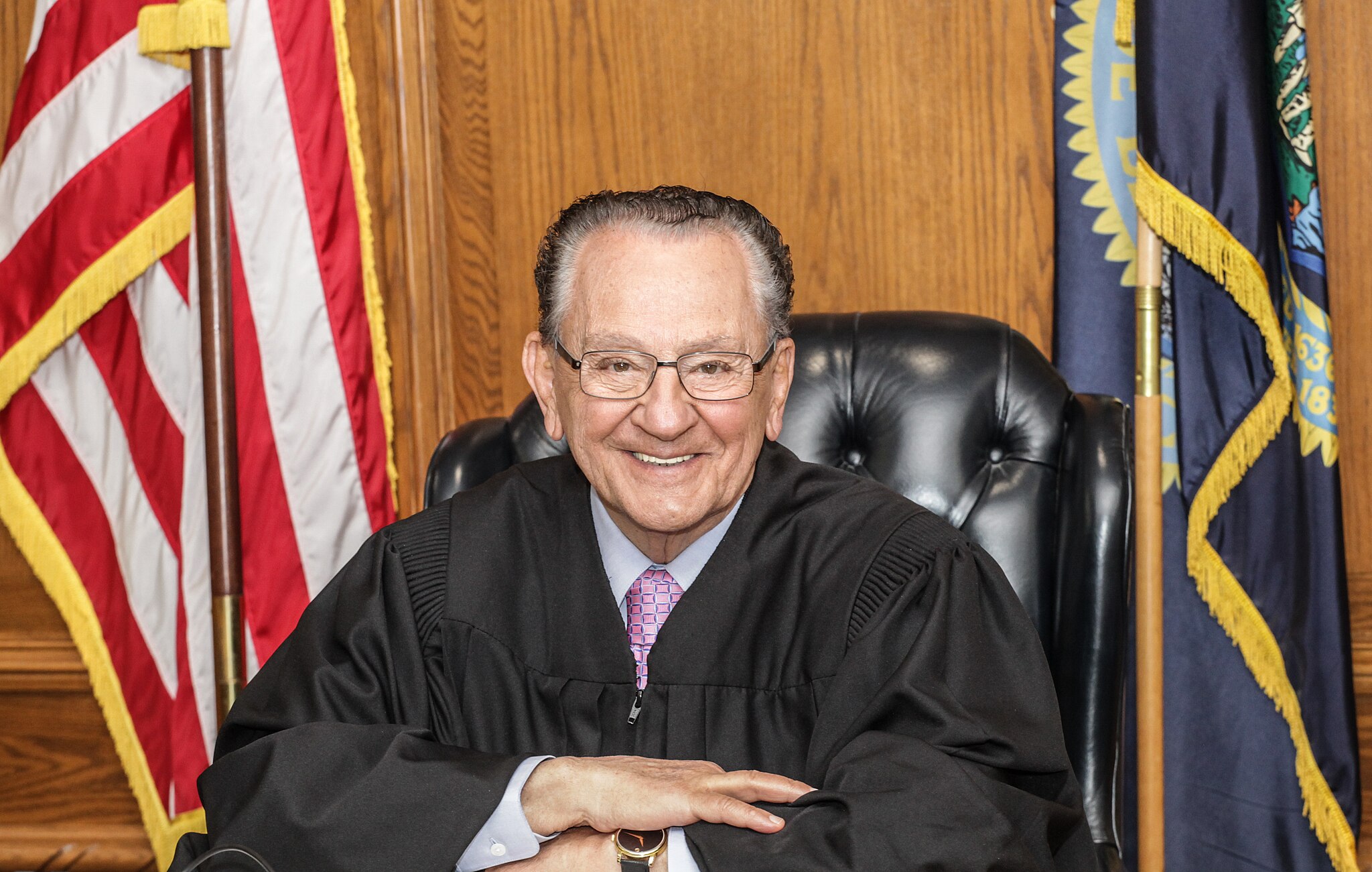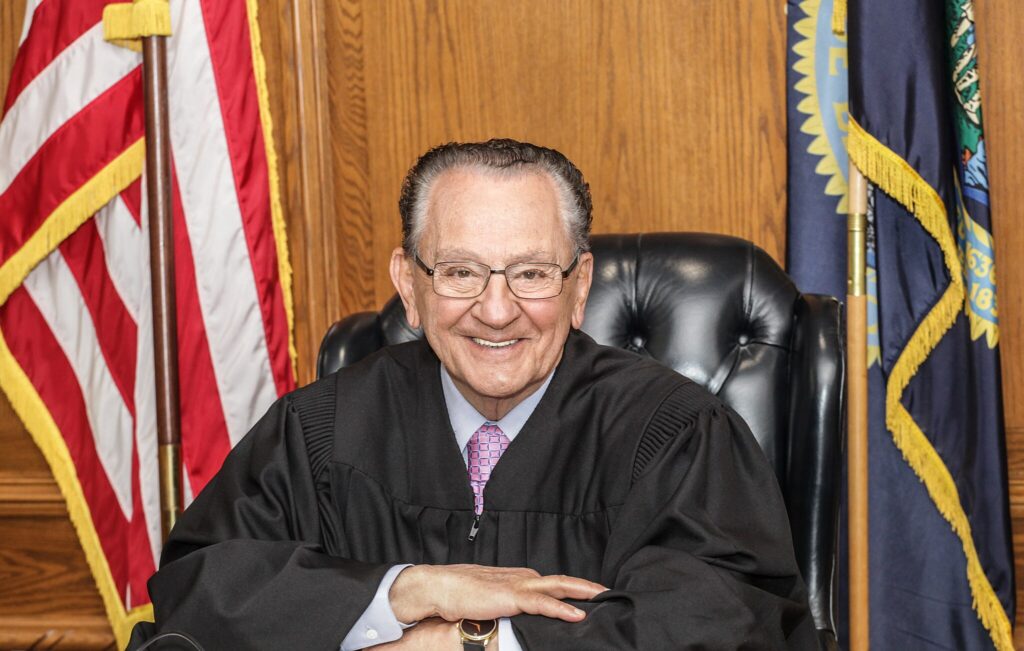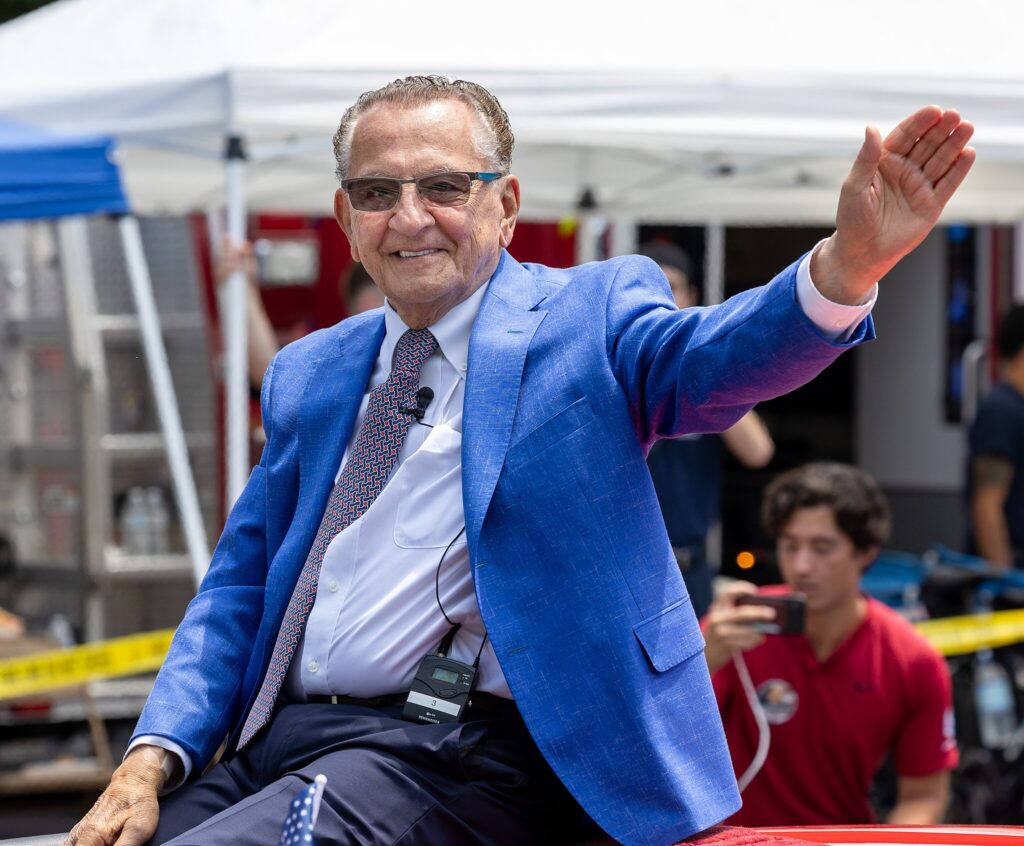Watch – Judge Frank Caprio Posted Heartbreaking Update to Fans From Hospital Bed Day Before Passing Away

Every so often, a person comes along who changes the way we see the world. Not through wealth, not through power, but through the quiet strength of kindness. Judge Frank Caprio was one of those people. He reminded us that even in places where rules feel unbending, compassion can still lead the way. His passing is not just news of a man gone, but a lesson echoing for the rest of us: justice without empathy is empty, but justice with humanity can transform lives.
When Justice Wore a Human Face
There are judges who hand down sentences, and then there was Judge Frank Caprio, who handed down humanity. Known around the world as the “nicest judge in the world,” Caprio became a quiet symbol of what justice could look like when tempered with compassion. On August 20, at the age of 88, he passed away after a courageous battle with pancreatic cancer.
His death was not just the closing of a chapter in Rhode Island’s courts. It was the end of a life lived in service, marked by small acts of kindness that rippled into millions of hearts. In a statement shared to his Instagram, his family and team wrote: “Beloved for his compassion, humility, and unwavering belief in the goodness of people, Judge Caprio touched the lives of millions through his work in the courtroom and beyond. His warmth, humor, and kindness left an indelible mark on all who knew him.”
This is the story of a man who chose empathy over ego, and kindness over cold judgment. And in his passing, he leaves us with a question: how do we measure a life well lived?
A Judge Who Led With Heart
In a system often defined by rigidity, Judge Frank Caprio became the exception. His courtroom in Providence was not just a place where laws were enforced, but where lives were understood. He listened to people not as case numbers, but as human beings carrying invisible burdens.
Clips from his show Caught in Providence went viral because they revealed something rare: justice paired with empathy. In one instance, a grieving mother stood before him, struggling under $400 worth of traffic fines. Caprio, recognizing her pain, dismissed the fees, offering her compassion instead of punishment. In another moment, a bartender earning less than $4 an hour faced a costly fine for running a red light. Again, Caprio looked beyond the letter of the law and chose mercy, acknowledging her struggle to make ends meet.

His actions were not about leniency for its own sake, but about remembering that justice must serve humanity. As his family wrote in their farewell statement: “He will be remembered not only as a respected judge, but as a devoted husband, father, grandfather, great grandfather and friend. His legacy lives on in the countless acts of kindness he inspired.”
What set Judge Caprio apart was simple but profound: he knew that sometimes the fairest verdict wasn’t found in a statute book, but in the heart.
His Final Message and the Power of Prayer
On August 19, just one day before his passing, Judge Caprio reached out to the world from his hospital bed. The video he shared was not about fame or accolades, but a simple and heartfelt plea for connection. Speaking softly but with unwavering faith, he reminded millions why they had come to love him in the first place.
“Last year, I asked you to pray for me. It’s very obvious that you did ’cause I came through a very difficult period,” he began.
His honesty revealed both strength and vulnerability. He did not hide behind the image of an untouchable figure; instead, he allowed the world to see his struggle.
“Unfortunately, I’ve had a setback. I’m back in the hospital. Now, I’m coming to you again asking you to remember me in your prayers once more. And so I asked you again, if it’s not to much that you can remember me in your prayers.” For Caprio, prayer was never a hollow request. It was an act of shared humanity, a way of weaving people together across boundaries of race, class, and creed.
“I’m great believer in the power of prayers. I think the Almighty above is looking over us. So remember me, please.” In those words, he gave the world his final lesson: even in moments of weakness, there is strength in community, and even in times of suffering, there is dignity in faith.
A Legacy Beyond the Courtroom
Judge Frank Caprio’s reach grew from a municipal bench to a global audience. His proceedings became a syndicated series, Caught in Providence, which aired nationally from 2018 to 2020 and expanded his public presence far beyond Rhode Island.
Recognition followed from his industry peers. Caught in Providence earned a Daytime Emmy nomination for Outstanding Legal or Courtroom Program in 2021. In 2024, Frank Caprio himself was nominated in the Daytime Personality Daily category for Caught in Providence on Facebook Watch.
Leaders marked his passing with official honors. Rhode Island Governor Dan McKee directed that United States and state flags be flown at half mast until interment. The Governor also remembered him publicly as a “Rhode Island treasure” and added, “On a personal level, he was a friend who faced his illness with bravery, and I will miss him dearly.”
Judge Caprio was a Rhode Island treasure. As we mourn his passing, my thoughts go out to his family, friends, and all who loved him. pic.twitter.com/HNoUQVPpzg
— Governor Dan McKee (@GovDanMcKee) August 20, 2025
His public service record stands on its own. He served on the Providence City Council before being appointed a municipal court judge in 1985. He retired in 2023 after nearly four decades in that role.
The digital footprint of his work was substantial. News outlets reported that his videos drew over a billion views across platforms, introducing millions to a humane model of civic leadership. He also invested in the next generation. Frank Caprio established scholarships in honor of his father, including the Antonio “Tup” Caprio Scholarship Fund at Suffolk University Law School, and additional scholarships at Providence College and at Central High School in Providence.
Lessons We Can Live Today
Here are concrete, research-backed ways to lead and serve with humanity in everyday life. No platitudes. Just practices you can use.
- Lead with fair process
People accept outcomes more readily when the process feels fair. This means giving others a voice, explaining decisions, applying rules consistently, and treating everyone with dignity. These elements build legitimacy, which in turn increases voluntary cooperation at work, at school, and in communities. - Use a trauma-informed lens
Many struggles are invisible. Approach tough interactions by prioritizing physical and emotional safety, building trust through transparency, offering choices, and collaborating on solutions. These principles reduce harm and help people engage more constructively with systems and authority. - Listen to motivate change
When you need someone to change a behavior, start with reflective listening and open questions rather than directives. People commit more deeply to goals they voice themselves, making lasting change more likely.

- Repair harm with accountability, not humiliation
When conflict happens, consider restorative steps that bring people together to acknowledge harm, accept responsibility, and agree on amends. Restorative practices can reduce reoffending and increase satisfaction for those harmed, especially compared with purely punitive responses. - Apologize well when you’re at fault
A real apology acknowledges the mistake, accepts responsibility, and expresses remorse. Done sincerely, it can lower anger and rebuild trust. Avoid scripted or hollow apologies and focus on authenticity. - Practice small mercies daily
Micro-acts of help at work or in your neighborhood can lift both the giver and the receiver. Small, meaningful gestures create ripples of connection and remind us that kindness is contagious.
The Spiritual and Human Takeaway
At the end of his life, Judge Caprio offered the world a message that was less about himself and more about what connects us all. In one of his final posts, he wrote: “As I continue this difficult battle, your prayers will lift my spirit.”
Those words reveal the essence of his legacy: an unshakable belief in the strength of community and the unseen threads that bind us together. He understood that beyond laws and titles, we are sustained by the compassion we give and receive.
His story reminds us that true influence is not measured in years of service or in accolades, but in the way people feel when they leave your presence. Do they feel heard? Do they feel respected? Do they feel cared for?
Caprio’s life was an answer to those questions. And his passing is an invitation for us to ask ourselves: how will others remember us? Not for what we earned, but for the love and mercy we offered.
Featured Image from StephanieRPereira, CC BY-SA 4.0, via Wikimedia Commons
Loading...

